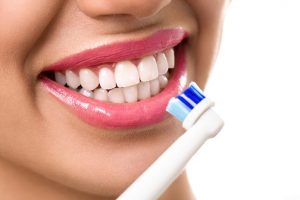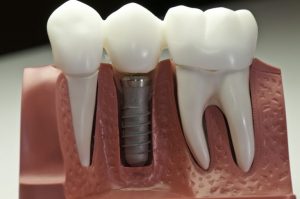Author: craigentinny
Jaw Pain: Need to know
 “TMD” or “TMJ” refers to a joint disorder of the jaw – a range of problems which cause pain and tenderness. Your dentist can identify what’s causing the pain.
“TMD” or “TMJ” refers to a joint disorder of the jaw – a range of problems which cause pain and tenderness. Your dentist can identify what’s causing the pain.
Key takeaways:
– Jaw pain and headaches may indicate you grind your teeth.
– Misalignment of the jaw can cause chronic jaw pain
– Untreated cavities can lead to infection in surrounding tissue.
– Infections in impacted wisdom teeth often cause jaw pain.
Schedule an appointment with your dentist if you experience jaw pain.
“There are many treatments that can help with jaw pain, most of them involving dental care.”
Article:
Happy Boxing Day

Merry Christmas

Are orthodontic issues hereditary?
 Is it possible to inherit crooked, over-crowded or weak teeth? According to studies, our parents must contribute to our dental shape and size. But can we also inherit dental problems in the process?
Is it possible to inherit crooked, over-crowded or weak teeth? According to studies, our parents must contribute to our dental shape and size. But can we also inherit dental problems in the process?
Key takeaways:
– Since the size and the shape of you jaw and teeth are hereditary, it is possible to inherit orthodontic issues.
– Childhood habits like mouth-breathing and prolonged thumb-sucking may cause gaps, overbites and under-bites.
– Remember, orthodontic issues might be hereditary but your dental health is your responsibility.
Also, visit the dentist regularly for checkups.
Read more here:
https://yourdentalhealthresource.com/are-orthodontic-issues-hereditary/
Why Gum Disease Should be Tackled from the Start
 Were you aware that there is much more than meets the eye in terms of gum disease? Chronic inflammation in the gums travels into the overall body, causing damage to arteries and veins.
Were you aware that there is much more than meets the eye in terms of gum disease? Chronic inflammation in the gums travels into the overall body, causing damage to arteries and veins.
What are some potential issues associated with periodontal disease and why should you consult with your dentist?
– Gum disease may increase your chances of developing heart disease.
– There may be a link between gum disease and diabetes.
– Your immune system will be affected, increasing your risk of infection.
”The inflammation involved in gum disease may actually increase your chances for plaque in the arteries. Bleeding gums are a sign of gum disease. Make an appointment with your doctor to get teeth cleaned.
Learn more:
https://yourdentalhealthresource.com/why-is-gum-disease-dangerous-to-your-health/
Signs of a wisdom tooth infection
 Over three quarters of adults will need their wisdom teeth removed. If an infection is caught early enough, the tooth may not need to be extracted.
Over three quarters of adults will need their wisdom teeth removed. If an infection is caught early enough, the tooth may not need to be extracted.
Key takeaways:
– Wisdom teeth don’t always fully erupt leading to impacted teeth which are prone to infection.
– Wisdom tooth infection symptoms include redness, tenderness, temperature, foul taste or foul-smelling breath.
– Schedule an appointment with your dentist if you think you have a wisdom tooth infection.
“You’ll need to have your dentist properly clear the infection, and you’ll likely need to be on antibiotics.”
Read the full story here: https://yourdentalhealthresource.com/top-signs-of-wisdom-tooth-infection/
Can Gum Disease Contribute to High Blood Pressure?
 There appears to be a strong link between blood pressure and gum disease. Scientists have found that those who properly care for their teeth and regularly visit the dentist have less chances of developing hypertension over time. Other interesting observations included:
There appears to be a strong link between blood pressure and gum disease. Scientists have found that those who properly care for their teeth and regularly visit the dentist have less chances of developing hypertension over time. Other interesting observations included:
– After six months of intensive gum disease treatment, systolic pressure can be lowered by up to 13 points.
– Antibiotic treatments and tooth removals may be necessary on occasion to treat gum disease.
– Treating gum disease helps to reduce risk of stroke associated with high blood pressure.
”About one of every three adults in the United States — nearly 75 million people — has high blood pressure.”
Read more:
How your child's dental health could affect their development
 Are you aware that children’s dental health could affect their growth and development? Children with healthy looking teeth have more self-esteem than children who suffer from dental issues.
Are you aware that children’s dental health could affect their growth and development? Children with healthy looking teeth have more self-esteem than children who suffer from dental issues.
Key takeaways:
Remember to take your child to the dentist, immediately you notice any dental problem.
– Issues like decay, overcrowded teeth, bad odour, discolouration and staining could destroy your child’s confidence.
– Protect your child’s teeth by teaching them proper oral habits including regular visits to the dentist.
– Incorporate teeth-healthy foods in your child’s diet and remind them to brush after every meal.
Learn more here:
Dental Implants: Evaluating Their Benefits
 If you have been hoping to replace a damaged tooth, you will be happy to learn that dental implants can help to fill this “gap”. What are some of the benefits in regards to these devices and will they be able to effectively replace your teeth?
If you have been hoping to replace a damaged tooth, you will be happy to learn that dental implants can help to fill this “gap”. What are some of the benefits in regards to these devices and will they be able to effectively replace your teeth?
– A dentist will normally determine whether or not implants are the right option for your needs.
– As these implants are fashioned from titanium, they will last a lifetime.
– The procedure is minimally invasive and in the majority of cases, only local anaesthetic is required.
”These natural tooth replacements are functional, beautiful, and sturdy.”
Learn more:
Avoiding Temporomandibular Joint Disorder
 TMJ, or Temporomandibular Joint Disorder, affects the joints between the jawbone and skull and can be painful. However, much of the pain and discomfort can be avoided by taking a few basic precautions.
TMJ, or Temporomandibular Joint Disorder, affects the joints between the jawbone and skull and can be painful. However, much of the pain and discomfort can be avoided by taking a few basic precautions.
– Don’t Abuse Your Teeth by using them to open bottles or packets.
– Don’t Grind Your Teeth as it puts pressure on the jaw and joints.
– Maintain Good Posture as slouching can strain the head, neck and jaw muscles.
By following these simple steps the “TMJ symptoms can be less painful” but if the problem persists it is advisable to consult your dentist and you can read more about TMJ at http://yourdentalhealthresource.com/are-you-unintentionally-making-your-tmj-worse/.
